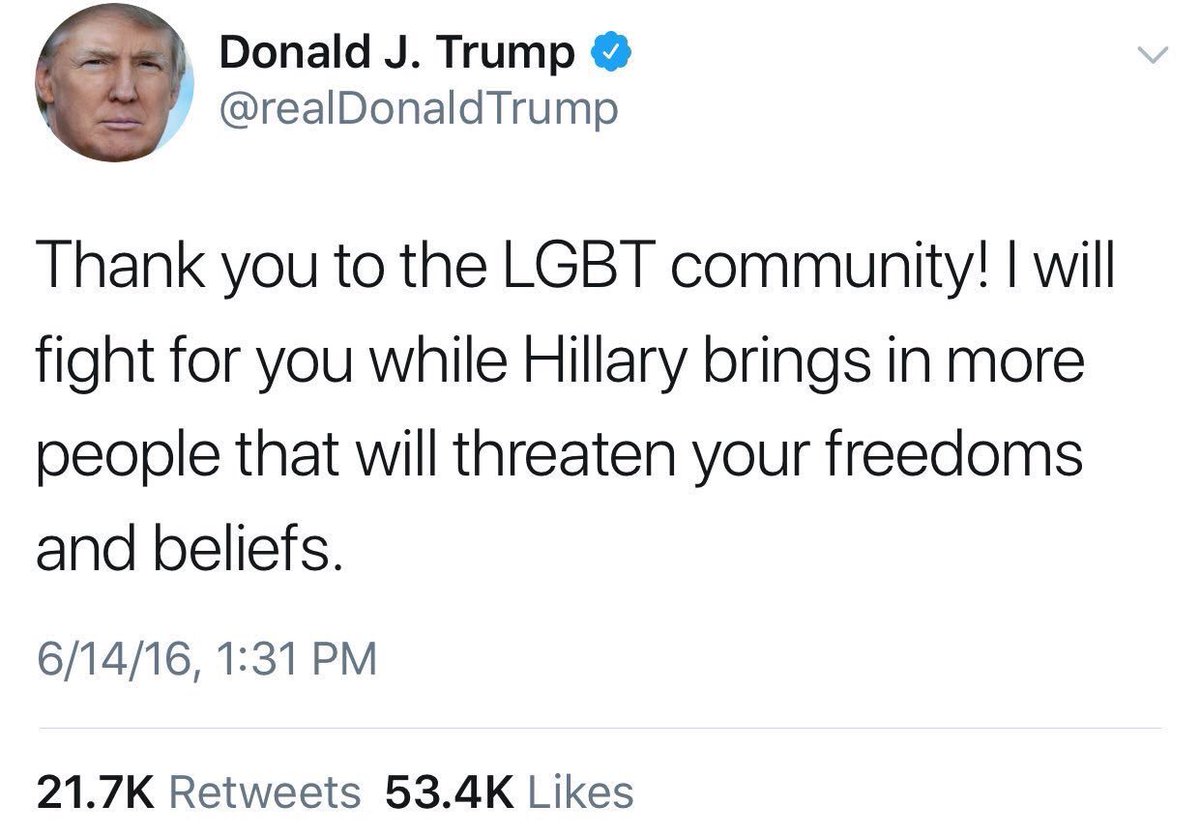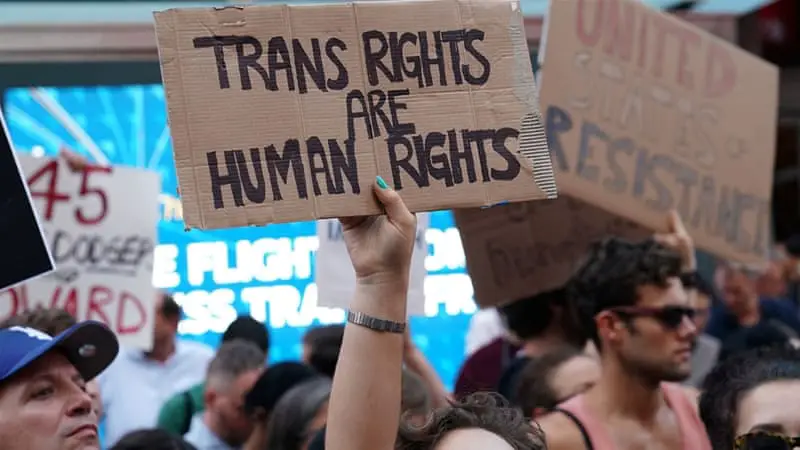When Donald Trump was still campaigning for the presidency, he reached out to a group that Republicans generally tend to ignore: transgender Americans. During his address at the 2016 Republican National Convention, an event that included a rousing speech from openly-gay Republican Peter Thiel, Trump thanked the LGBT community for their support and promised to fight for their rights and freedoms.
In an interview with “The Today Show,” Trump openly opposed a North Carolina bill that required transgender individuals to use the bathroom that corresponds to the gender assigned to them at birth. At one point during the campaign, he proudly displayed an upside-down pride flag that read “LGBTs for Trump.”
For many voters, it felt promising to see a Republican presidential candidate embrace the LGBT community when the party’s official platform advocates for conversion therapy and denies the validity of gay marriages.

In the weeks and months following the election, however, it became clear that Trump’s promises were nothing but empty. Mere minutes after Trump’s inauguration, mention of the LGBTQ community was erased from the official websites of The White House, The Department of State and The Department of Labor.
His policies enacted to protect religious freedom have been criticized for enabling LGBT discrimination and undoing the community’s progress that was made under the Obama administration. The most prominent attacks have seemed to specifically target transgender Americans. After entering office, Trump ended federal protections for transgender students, employees and prisoners.
He announced a plan to ban transgender individuals from serving in the U.S. military, ordered the CDC to refrain from using “transgender” in budget documents, removed anti-LGBT discrimination guidelines from The Department of Housing and Urban Development website and nominated a federal judge who described transgender children as being a part of “Satan’s plan.” To be clear, these only represent a handful of examples.
Aside from the swift legal responses, the public backlash against these policies has been overwhelming and serves to represent the progress that the transgender community has made over just the past few years. After the president announced the ban on military service, the hashtag #TransRightsAreHumanRights was trending on Twitter with everyday Americans voicing their frustrations at the administration.

Similar social media responses occurred with the removal of federal protections for transgender students and prisoners as activists began to fear what these attacks could mean for the work that they’ve done over the past several decades.
The transgender rights movement didn’t really begin to gain momentum until the latter half of the 20th century, beginning with the transition of Christine Jorgensen during the 1950s. While she wasn’t the first person to undergo gender reassignment surgery, she was the most publicized American to do so, and her fame is credited for bringing the term “transgender” into the national conversation.
Using this as a starting point, transgender activists have worked tirelessly to keep members of the community visible and make their stories heard in an effort to help the average American in relating to them. This mission has been helped by the fact that nearly four in 10 Americans know someone who is transgender.
It’s because of the necessity of relatability that civil rights are central to the acceptance of transgender people into mainstream society. Why would everyday Americans treat their trans counterparts as equals if the government says otherwise?
Under the Obama administration, it seemed as though the community was in the process of leaving the past behind thanks to new LGBT-friendly policies that allowed individuals to live without being confined by the gender assigned to them at birth. These policies were decades in the making and encouraged the acceptance of a group that many have publicly demonized or referred to as “mentally ill.”
Despite the support from the previous administration, the trans community still faces hurdles when it comes to public opinion toward their cause. A 2017 Gallup Poll found that just 51 percent of Americans support new laws to protect the civil rights of the LGBT community, and only 45 percent supported trans people using the bathroom that corresponds with their gender identity.
When Pew visited the issue later that year, they found that opinions toward the transgender community differed greatly according to party with 64 percent of Democratic respondents saying that gender can differ from birth as opposed to 19 percent of Republican respondents.
In a study of 16 countries around the world, marketing research company Ipsos found that Americans were the most likely to use the pronoun associated with the gender assigned at birth or consider transgender people to be committing a sin.
Advocates within the trans community warn that Trump’s policies will only make the issue worse. The fear is that the alienation of trans individuals in everyday life will once again create an “us vs. them” mentality in the American public that will undo so much of the progress that has been made over the past several decades.
It’s difficult to predict whether or not that will actually happen given the greater publicity of trans issues in the media compared to several years ago, but it’s a valid fear nonetheless. For those who remember the countless years of hiding their true selves and the fear of being treated differently based on identifying as transgender, the effects of Trump’s policies could affect the well-being of young individuals who are still trying to figure out where they fit on the vast spectrum of gender identity.
What is certain about this fight is that the trans community is not backing down. Right now, their greatest ally seems to be the American legal system. On May 22, a federal judge ruled in favor of Gavin Grimm, a transgender man who was prevented from using the men’s restroom by his school in 2014.
The American Civil Liberties Union is currently suing the state of Montana to prevent an anti-transgender initiative from being on the ballot in November. A legal challenge to Trump’s ban on transgender service in the military is currently making its way through the courts.
The litigation is based on a variety of scenarios and a variety of experiences, but it all serves to send the same message on behalf of all transgender Americans: they’re not going to let their rights go anywhere.

















